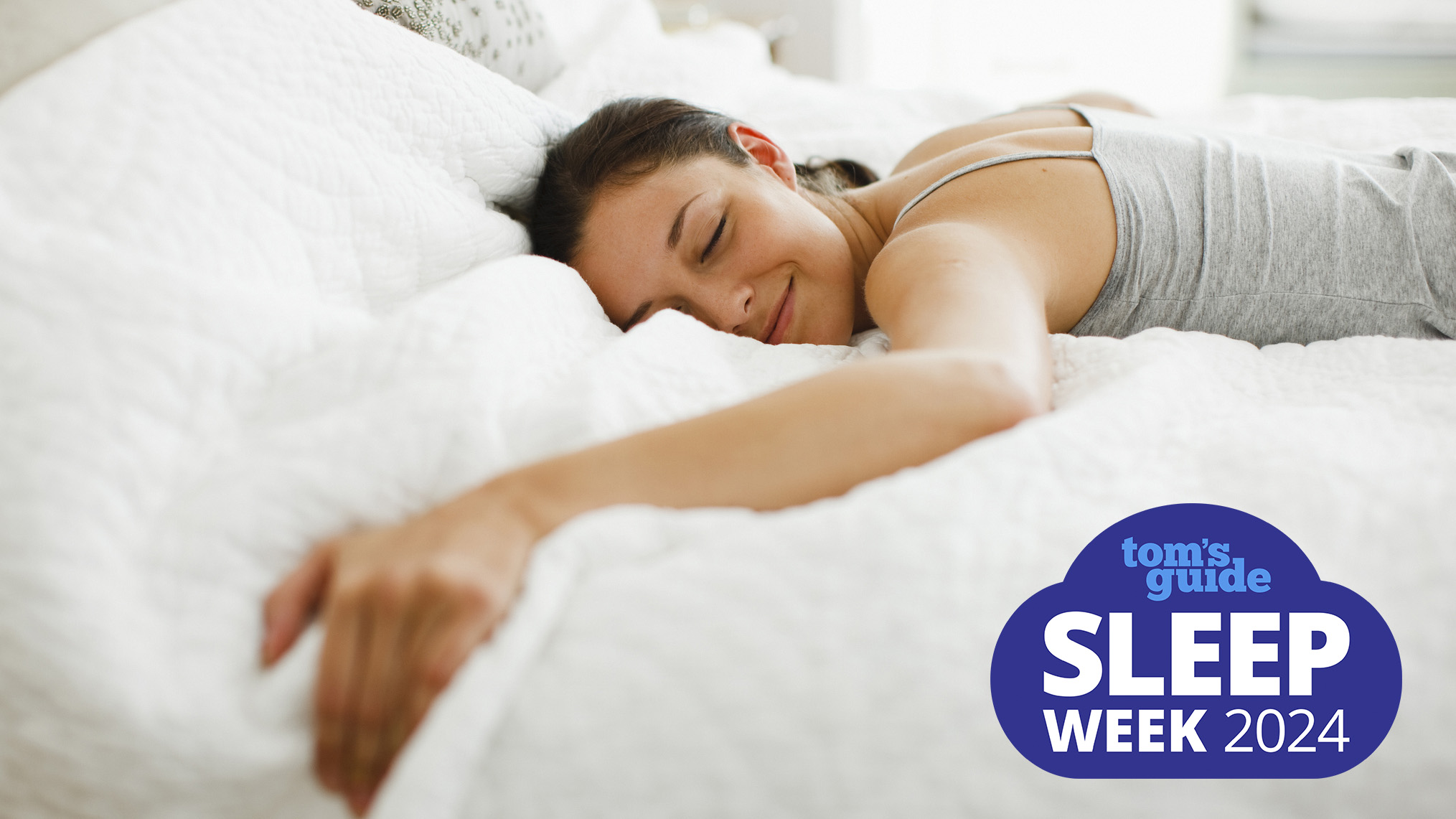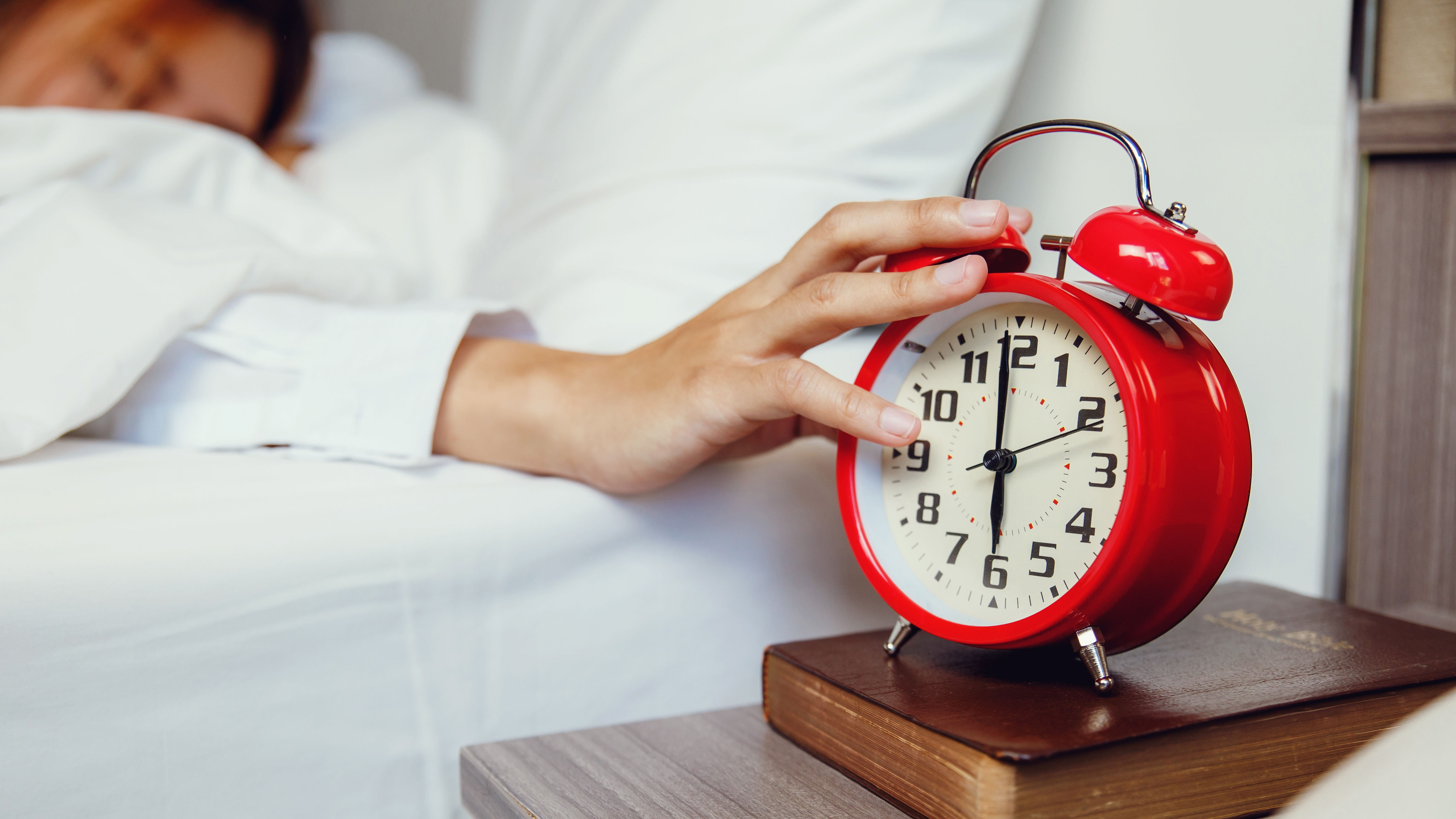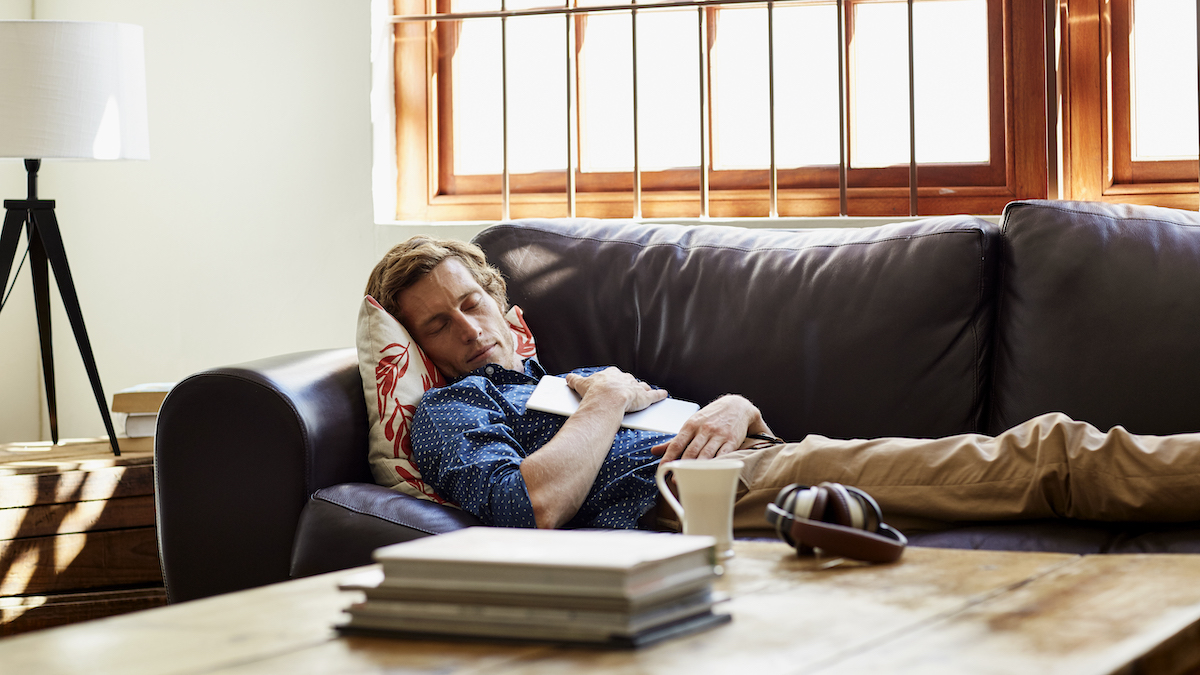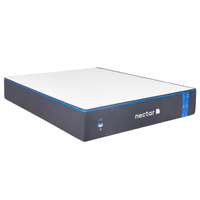I’m a sleep coach — 5 ways your naps are stopping you sleeping through the night
Benefit from my mistakes and learn when is the best time to nap and for how long

Ever heard the phrase ‘Sleep begets sleep? Napping in the daytime can actually help you enjoy better, deeper sleep at night. However, there are some pretty big caveats to that and I’ll explain them here.
Since having a baby 18 months ago, I’ve become something of a nap queen. I have daytime sleep down to a fine art for me and my son, but I’ve made a huge number of mistakes along the way.
For Sleep Awareness Week 2024, I’m sharing the five biggest mistakes people (including me) commonly make with naps. Avoid these, and you can have your sleep cake and eat it – an energising daytime nap that doesn’t spoil your chances of sleeping through the night.
Of course, the exception to all of this is when you're unwell. During periods of sickness, take the daytime sleep you need and work on fixing your sleep schedule once you're feeling better.
Nectar Mattress: up to 40% off at Nectar Sleep
During Sleep Awareness Week, you can save up to 40% on memory foam and hybrid mattresses at Nectar Sleep. We rate the Nectar Memory Foam as the best mattress for most sleepers with a smaller budget seeking a breathable and supportive all-foam bed to relieve aches and pains. A queen is now reduced to $649 in the US and £600 for a double with a free bedding bundle in the UK. You'll also get a lifetime warranty and year's sleep trial.
The 5 biggest mistakes people make with daytime naps
1. They nap too late in the day
Have you ever snacked your way through the day and then come dinner time you can’t eat a proper meal because you’re too stuffed? Sleep is like that – if your sleep drive (hunger for sleep) isn’t high enough come bedtime, you’ll have a hard time falling asleep and you’ll have a higher chance of waking up through the night.
I’ve interviewed quite a few sleep experts for my job and they all agree that daytime naps are best had earlier in the day. So when should you nap? For most people with a bedtime of around 9-10pm, aim to start and finish your nap before 3pm. That will help you create enough of a sleep drive to fall asleep fast at bedtime and to sleep through the night.
If you’re a night owl or night shift worker, you may want to take your nap later as your bedtime will naturally fall later.
Sign up to get the BEST of Tom's Guide direct to your inbox.
Get instant access to breaking news, the hottest reviews, great deals and helpful tips.
Best time to nap: Start and finish it before 3pm

2. They nap for too long
Did you know there are three types of nap? The length of time you nap for can have different benefits for your overall wellbeing. Longer naps of 90 minutes (a full sleep cycle for the average person) enable you to cycle through all stages of sleep. This is excellent for boosting your memory and helping you to retain information.
I take longer daytime naps when my baby has been up a lot during the night and I’m battling with sleep deprivation. But there’s a downside to longer naps: sleep inertia. This feeling of intense grogginess makes me feel hungover and tired for the rest of the day. If you need a longer nap, take it at around 1pm (when the mid afternoon slump kicks in) so that you have time to build up your sleep drive for bedtime.
My best naps are up to 20 minutes long. These power naps are the perfect length to take the edge off tiredness without affecting nighttime sleep. 20 minutes also means you'll stay in the lightest stages of sleep, avoiding any sleep inertia.
Best length of time for a power nap: 20 minutes
3. They don’t factor in time to fall asleep
Unless you have perfected the art of falling asleep instantly – which is actually a huge red flag for sleep deprivation–- you need to factor in up to 10-20 minutes to fall asleep. This is the average length of time it takes a person to fall asleep.
To help yourself fall asleep faster for a nap, try the Navy SEAL sleep technique. This is designed for power naps and is really easy to do. To help you fall asleep faster at night, try the Military Sleep Method instead.
Best length of time to fall asleep: Within 10-20 minutes

4. They don’t nap in the right space
Just because you can fall asleep anywhere doesn’t mean you should. Napping in an armchair or sofa is fine if you have no other option, but ideally you want a cool, dark, quiet and comfy spot to nap in.
When your body is physically comfortable, you’ll fall asleep much faster. You’ll also feel better physically rested upon waking as you won’t be bent out of shape as you might be when napping upright in an armchair; your spine will always be in better alignment when napping on a mattress and pillow that suits your sleeping position.
My baby’s crib is still in my bedroom, so I always have my daytime nap on my bed while he’s having a much longer nap in his crib. I use blackout blinds to diffuse the amount of natural light coming throug, with a small window popped open to allow fresh air to circulate (helps us sleep better and it gets rid of pollutants and allergens).
Best place to sleep: A cool, dark, quiet room with a supportive mattress
5. They don’t have a post-nap wake-up plan
My colleague recently wrote about why doctors drink coffee before taking a nap. These so-called ‘nappucinos’ are genius as you get to power down for 20 minutes during the nap, then when you wake up, the caffeine from your coffee will be flooding your body. So you’ll feel extra energised upon waking.
If you don’t drink coffee, try a matcha green tea instead. Avoiding caffeine altogether? Then have a big glass of water ready and drink it as soon as you wake up. Hydrating yourself is a key step in how to wake up feeling energised.
Also, get up from your bed and open the blinds and curtains as soon as you're awake. Stand near the window or go outside and get a big hit of daylight so that your body clock (circadian rhythm) stays on track. That will help you boost your chances of still falling asleep fast and sleeping through the night after a daytime nap.
Are naps good for you?
Yes, naps are very beneficial to your overall health. The benefits of napping include:
- Less fatigue
- Improved mood
- Faster reaction times
- Better memory function
- Lower levels of stress
Not everyone is in a position to sleep in the daytime, which means the quality and length of nighttime sleep is evermore important.
To improve your nighttime sleep, practise good sleep hygiene. That means having a consistent bedtime routine, going to bed and getting up at the same time every day, and avoiding use of tech or eating heavy meals before bed.

Claire is a fully qualified journalist and Certified Sleep Science Coach with over 16 years’ product review experience. Claire is responsible for all mattress and sleep content published on Tom’s Guide, including our Best Mattress of 2025 buying guide. She is our expert on Saatva, DreamCloud, Nectar and Tempur-Pedic mattresses, and is also our in-house hybrid mattress specialist. Claire is certified to advise people on how to choose a mattress that best suits their sleep, body and budget, as well as helping them to create a nighttime routine and bedroom environment that promote good sleep. As Senior Sleep and Mattress Editor, Claire takes the lead on developing and overseeing rigorous testing procedures for our mattress reviews, both at home and in our fully equipped Sleep Lab. Claire leads a team of experienced sleep and mattress specialists who report on and test a wide range of mattress and sleep products, and she also writes about all things related to sleep, and has interviewed a wealth of experts including mattress designers and buyers, neuroscientists, and doctors of sleep medicine.


